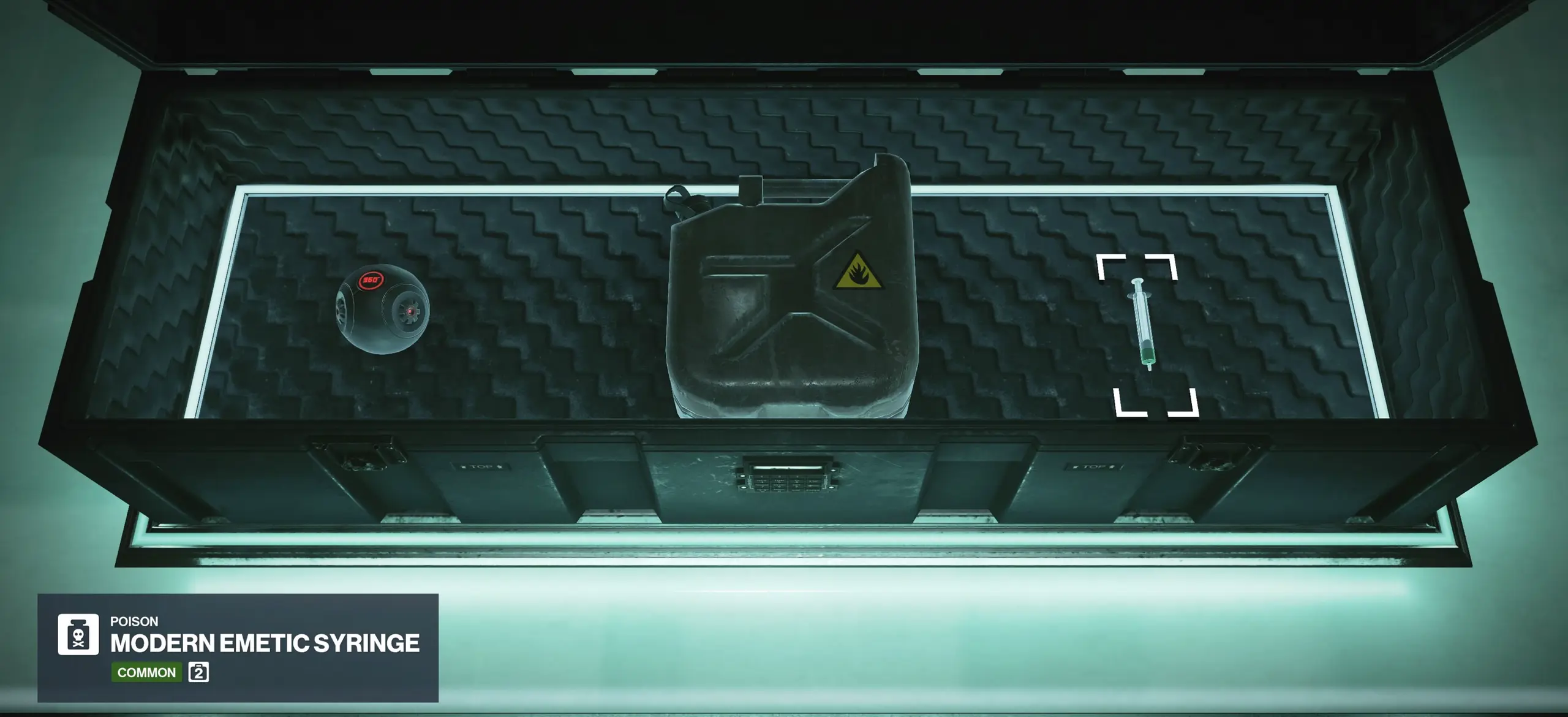

Freelancer Difficulty and The Persistency Rules of Freelancer Tools
One of the frequently recurring pieces of feedback we got since the Closed Technical Test (CTT) was around the frustration of losing a campaign. We’ve been analyzing and considering this feedback carefully and would like to share our thoughts with you and explain why we have changed what we have changed and kept what we have kept.
A part of this frustration is about losing all progress in the campaign, forcing players to start all the way back from the beginning – which some felt were a bit too hardcore. This part we see as an established concept in a game mode borrowing from the Rogue-like genre and have decided not to change. We want winning a campaign to be an accomplishment, and we like the adrenaline rush that the heavy consequences for failing in an alerted- or showdown mission brings.

But another key part of the frustration seems to revolve specifically around losing Freelancer Tools, when failing a campaign. In the following we’ll address this issue and go a bit more in depth around the thoughts behind this part of the design.
Frustration Points
The persistency rules for gear in Hitman: Freelancer can be summarized like this:
- Normal gear with rarity (firearms, many melee items etc.) are persistent once the player has them stored on gear walls in the safehouse. This gear will only be lost if they are brought on mission and not brought back (by dying on a mission or dropping / forgetting the item).
- Normal gear with no rarity (some low-tier firearms and melee items and “everyday”-items like food and some tools) can be used on missions if found there or brought from the safehouse to a mission, but as they don’t have a rarity, they cannot be stored persistently.
- Freelancer Tools (tools, poisons, dart guns, explosives) are tied to the campaign the player is currently playing. You lose these items if you don’t bring them back from a mission, as with the normal gear with rarity, but on top of this the player will lose all Freelancer Tools – even the ones that are stored in the safehouse – when a campaign is lost (or aborted by the player).
The frustration around losing Freelancer Tools on campaign failed can be broken down into a couple of different topics.
Frustration1: Inconsistency and lack of communication
HITMAN is a quite complex and difficult game in itself and the rules of HITMAN: Freelancer are adding to this complexity level. For many players the specific rules for Freelancer Tools seems unintuitive.
Losing gear when you die on a level is a stable of Rogue-likes. It seems fair and it’s intuitive because it makes sense on a fantasy-level.
The rules for Freelancer Tools can come across as breaking this “contract” established between the game and the players. Adding to that it can be difficult to distinguish between Freelancer Tools and the other items.
We have decided to address the latter by introducing a label that can be seen in the inventory wheel menu or when inspecting a Freelancer Tool, so that the information about what category an item belongs to is always available.
For the complexity itself we have tried to make elegant and clear rules as much as we can. But we have also chosen to accept that the game mode requires a bit of extra commitment from the players to understand the rules, rather than removing depth by simplifying the game mode too much.
Frustration 2: The breaking of immersion
A problem with losing the Freelancer Tools on campaign fail, is that it can easily come across as immersion breaking. The safehouse should be an impeachable location – it’s in the name! – so who removes those items? It can easily either feel like burglary or come across as very “gamy.” In both cases it undermines the fantasy of the safehouse – which is bad.
We thought long and hard about if we could make a believable narrative reason for losing Freelancer Tools but without success. An idea could have been to never store the Freelancer Tools in the safehouse, but instead have them be available as a loadout crate at the starting locations on missions. This would probably have alleviated the breaking of immersion a lot. But the trade-off would be that the strategic gameplay of planning would be impacted negatively. By making all Freelancer Tools available on location, players would miss out on the interesting decisions in the safehouse of which Freelancer Tools to bring, that will be optimal for a given location, set of payout and prestige objectives and mission type, thus making the experience much more handheld. Here we decided to not compromise the planning gameplay and instead accept the breaking of immersion.
Frustration 3: The frustration of losing gear that has been earned
In HITMAN: Freelancer we simply believe that gear in the Freelancer Tools category is closely related to the freedom and choice you have on a mission. A lockpick will to a large extend determine what areas you can access (even though there’s other ways to open a locked door), access to poison, explosives etc. will heavily influence which payout and prestige objectives it is possible to carry out and so on.
Therefore, it feels very punishing to lose these opportunities and this agency, upon failing a Campaign (or aborted by the player). We realize and respect that!
We have still chosen to stick to the hardcore rule for Freelancer Tools because we believe it is the best choice for the game mode. This last part is a deep dive into our reasons for this decision.
HITMAN: Freelancer has a number of different progression systems at play that are important to line out to show how the rules for Freelancer Tools fit this ecosystem.

Mastery: The slow and linear power-growth:
There’s the long-term persistent growth of the mastery levels. This is a linear progression that largely impacts the safehouse and the availability of cosmetics (Except for gear capacity increases and some money rewards). It is driven by earning XP, which a player can do independent of the success of a mission or campaign. Unlike money and gear, the player gets to keep XP earned, even when dying on a mission. So, this growth is steady and available for players at all skill levels. It is motivated by offering roleplaying opportunities and to stimulate collectors and completionists.
Gear: The steady, occasionally bumpy ride:
Then we have the gear persistency system. Gear availability will impact player agency on a mission. Having access to silenced weapons, for instance, means a big difference for what a player can pull of on a mission and to how various challenges can be approached. That being said the different firearms within a subcategory isn’t a hugely differentiating factor for gameplay approaches, in the way the firearms are designed.
We have added a layer on top of this in the game mode, by making the rarity of a weapon have associated prestige objectives, which makes it important what specific weapon the players bring and adds an incentive to risk a rare and valuable piece of gear.
Even with this, the power-growth of weapons, is a system where players will stock up their arsenal incrementally over time, and lose fewer weapons than they acquire, with a relatively small impact on agency/actual power, once some key categories of weapons have been secured. It’s a power-growth curve that rises slowly, with a few dents when a piece of gear is lost, and then flattens out over time.
Freelancer Tools: The dramatic shark fin:
The design of the rules for losing Freelancer Tools mean that we can be very generous with these items. That’s why we can have a system like the Safehouse Supply Crate, where the player gets a free item for every return to the safehouse. And that’s why we have the low prices for Freelancer Tools, which means that players can almost always afford a Freelancer Tool found at a supplier. We can give the player a lot of tools, precisely because we know that they are almost certainly for limited ownership.
This gives a much steeper power-growth, where we can give the player the experience of quickly gaining power – the From Zero to Hero journey that is so important to drive engaging experiences in a game mode inspired by Rogue-likes.
If we wanted this type of power-growth without the flip side of taking the Freelancer Tools away form the players, the experience of the game mode would be very short, because the arsenal of Freelancer Tools would be depleted too quickly – so this would hurt the replayability a lot.
The Freelancer Tools a player is given makes a big difference towards what gameplay styles are accessible. Together with the Syndicate Type property of the syndicates the player is going up against (that determines what objectives are giving payouts) this is our main way of incentivizing different playstyles.
This means that ensuring a dramatic influx of Freelancer Tools between Campaigns, is a huge driver in making the individual Campaign run different. A more dramatic difference between the availability of tools between campaign runs, forces players to try out tools and strategies that might be outside of the comfort zone instead of relying on go-to strategies. This gives much more variation and a much wider dynamic range of experiences.
This is the main reason we have chosen to stick to this design, even with all of the known issues and frustrations it brings. We simply believe that it makes the differences between runs much more memorable and interesting. And that is the promise of HITMAN: Freelancer – that any approach is valid, and any challenge is different from the previous one.
As a mitigation for players that gets turned off by not having reliable access to some of the more iconic tools in the HITMAN arsenal, we have added new versions of these tools based on feedback from the CTT. This means that players can now find and purchase a lockpick, coins, and dart guns that are persistent and not part of the Freelancer Tools category; these versions of the items can be bought and safely stored on your gear walls in the safehouse.
Thanks for reading, and we hope you enjoy HITMAN: Freelancer.

Be sure to also give our previous article on Freelancer a read